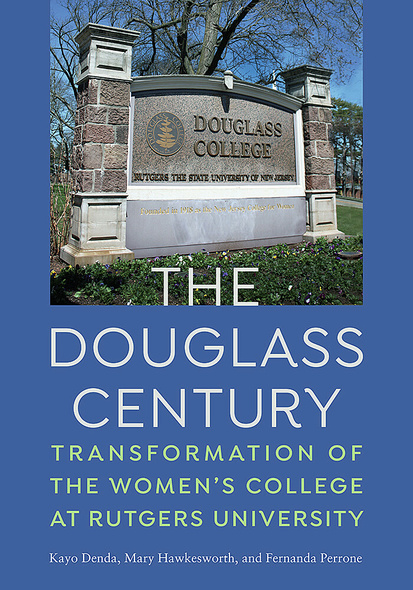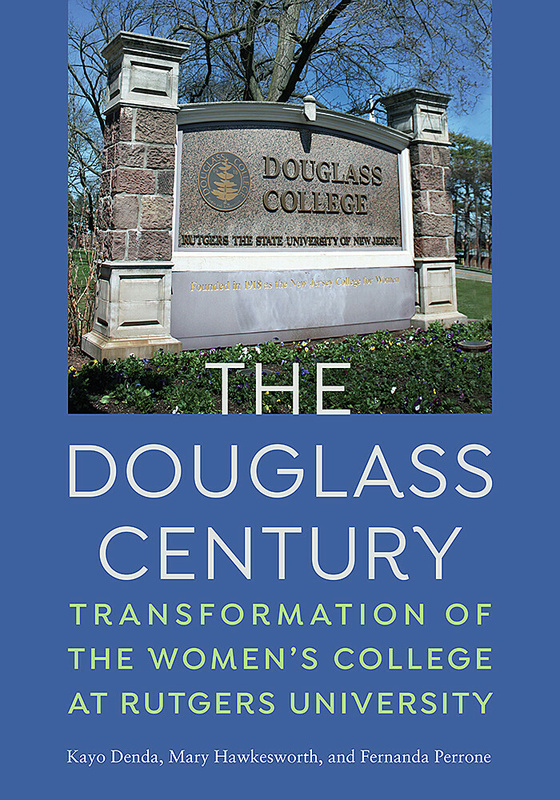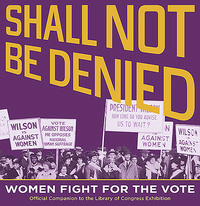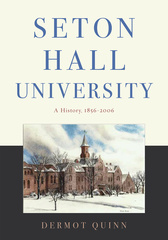The Douglass Century
Transformation of the Women’s College at Rutgers University
Rutgers University Press
Rutgers University’s Douglass Residential College is the only college for women that is nested within a major public research university in the United States. Although the number of women’s colleges has plummeted from a high of 268 in 1960 to 38 in 2016, Douglass is flourishing as it approaches its centennial in 2018. To explore its rich history, Kayo Denda, Mary Hawkesworth, Fernanda H. Perrone examine the strategic transformation of Douglass over the past century in relation to continuing debates about women’s higher education.
The Douglass Century celebrates the college’s longevity and diversity as distinctive accomplishments, and analyzes the contributions of Douglass administrators, alumnae, and students to its survival, while also investigating multiple challenges that threatened its existence. This book demonstrates how changing historical circumstances altered the possibilities for women and the content of higher education, comparing the Jazz Age, American the Great Depression, the Second World War, the post-war Civil Rights era, and the resurgence of feminism in the 1970s and 1980s. Concluding in the present day, the authors highlight the college’s ongoing commitment to Mabel Smith Douglass’ founding vision, “to bring about an intellectual quickening, a cultural broadening in connection with specific training so that women may go out into the world fitted…for leadership…in the economic, political, and intellectual life of this nation.” In addition to providing a comprehensive history of the college, the book brings its subjects to life with eighty full-color images from the Special Collections and University Archives, Rutgers University Libraries.
The Douglass Century celebrates the college’s longevity and diversity as distinctive accomplishments, and analyzes the contributions of Douglass administrators, alumnae, and students to its survival, while also investigating multiple challenges that threatened its existence. This book demonstrates how changing historical circumstances altered the possibilities for women and the content of higher education, comparing the Jazz Age, American the Great Depression, the Second World War, the post-war Civil Rights era, and the resurgence of feminism in the 1970s and 1980s. Concluding in the present day, the authors highlight the college’s ongoing commitment to Mabel Smith Douglass’ founding vision, “to bring about an intellectual quickening, a cultural broadening in connection with specific training so that women may go out into the world fitted…for leadership…in the economic, political, and intellectual life of this nation.” In addition to providing a comprehensive history of the college, the book brings its subjects to life with eighty full-color images from the Special Collections and University Archives, Rutgers University Libraries.
100-Year Journey At Douglass: From Early Technical Courses To STEM-Oriented Programs' by Tom Wilk
100 Years--and Counting' interview feature
100 years of Douglass College' by Tom Wilk
The Rutgers Century' by Mary Snead
The Douglass Century: A new book by Rutgers faculty and staff examines the history and diversity of Douglass Residential College in celebration of its 100th anniversary' by Merrie Snead
Rutgers Magazine (Spring 2018 issue) mention of The Douglass Century in the 'Letters' section
This well-researched book honors the impact of Douglass on the history of New Jersey and on the many young women who attended the institution over the last one hundred years. More significantly, The Douglass Century provides a thoughtful sense of the struggle women faced as they sought access to higher education and, as important as ever, the continuing challenges women face achieving leadership roles and equity in today’s society.
KAYO DENDA is the head of the Margery Somers Foster Center and the women’s studies librarian at the Rutgers University Libraries, New Brunswick, New Jersey. In 2016, she won the Association of College and Research Libraries (ACRL) Women and Gender Studies Section (WGSS) Career Achievement Award.
MARY HAWKESWORTH is distinguished professor of political science and women’s and gender studies at Rutgers University in New Brunswick. She is the editor of the leading feminist journal Signs and the author of many books, including Embodied Power: Demystifying Disembodied Politics.
FERNANDA H. PERRONE is an archivist, head of the of the Exhibitions Program and curator of the William Elliot Griffis Collection in the Special Collections and University Archives, Rutgers University Libraries, New Brunswick.
MARY HAWKESWORTH is distinguished professor of political science and women’s and gender studies at Rutgers University in New Brunswick. She is the editor of the leading feminist journal Signs and the author of many books, including Embodied Power: Demystifying Disembodied Politics.
FERNANDA H. PERRONE is an archivist, head of the of the Exhibitions Program and curator of the William Elliot Griffis Collection in the Special Collections and University Archives, Rutgers University Libraries, New Brunswick.
Foreword by Carol T. Christ, DC ’66 . . . . . . . . . . . . vii
Deans of the College, 1918–2018 . . . . . . . . . . . . . . . ix
A ssociate Alumnae of Douglass College:
Presidents and Executive Directors . . . . . . . . . . xi
1 Inventing Douglass: The Challenge
of Women’s Higher Education . . . . . . . . . . . . . . . . . . .1
2 New Jersey College for Women:
Establishing a Tradition, 1918–1933 . . . . . . . . . . . . .23
3 Challenges of the 1930s . . . . . . . . . . . . . . . . . . . . 51
4 World War II and Its Aftermath:
New Jersey College For Women,
1940–1950 . . . . . . . . . . . . . . . . . . . . . . . . . . . . . . . . . . . . . . . . . .73
5 From New Jersey College for
Women to Douglass College . . . . . . . . . . . 93
6 Preserving Douglass’s
Special Mission . . . . . . . . . . . . . . . . . . . . . . . . . . . . . . . . . 117
7 Douglass in Two Turbulent
Decades: Student Activism
and Institutional Transformation . . . . . . . . . . . . .143
8 Creating Knowledge about,
by, and for Women . . . . . . . . . . . . . . . . . . . . . . . . . . 171
9 R einventing Douglass:
From University Reorganization
to the Transformation of
Undergraduate Education . . . . . . . . . . . . . . . . . . . .199
10 Diversifying Douglass . . . . . . . . . . . . . . . . . . . 225
11 Douglass Residential College:
Revitalizing Women’s Education
in the Twenty-First Century . . . . . . . . . . . . . . . . . . 243
12 The Douglass Difference . . . . . . . . . . . . . . . . 259
Acknowledgments . . . . . . . . . . . . . . . . . . . . . . . . . . . . . .271
Notes . . . . . . . . . . . . . . . . . . . . . . . . . . . . . . . . . . . . . . . . . . . . . 275
Bibliography . . . . . . . . . . . . . . . . . . . . . . . . . . . . . . . . . . . . . 317
Index . . . . . . . . . . . . . . . . . . . . . . . . . . . . . . . . . . . . . . . . . . . . . . 327
Deans of the College, 1918–2018 . . . . . . . . . . . . . . . ix
A ssociate Alumnae of Douglass College:
Presidents and Executive Directors . . . . . . . . . . xi
1 Inventing Douglass: The Challenge
of Women’s Higher Education . . . . . . . . . . . . . . . . . . .1
2 New Jersey College for Women:
Establishing a Tradition, 1918–1933 . . . . . . . . . . . . .23
3 Challenges of the 1930s . . . . . . . . . . . . . . . . . . . . 51
4 World War II and Its Aftermath:
New Jersey College For Women,
1940–1950 . . . . . . . . . . . . . . . . . . . . . . . . . . . . . . . . . . . . . . . . . .73
5 From New Jersey College for
Women to Douglass College . . . . . . . . . . . 93
6 Preserving Douglass’s
Special Mission . . . . . . . . . . . . . . . . . . . . . . . . . . . . . . . . . 117
7 Douglass in Two Turbulent
Decades: Student Activism
and Institutional Transformation . . . . . . . . . . . . .143
8 Creating Knowledge about,
by, and for Women . . . . . . . . . . . . . . . . . . . . . . . . . . 171
9 R einventing Douglass:
From University Reorganization
to the Transformation of
Undergraduate Education . . . . . . . . . . . . . . . . . . . .199
10 Diversifying Douglass . . . . . . . . . . . . . . . . . . . 225
11 Douglass Residential College:
Revitalizing Women’s Education
in the Twenty-First Century . . . . . . . . . . . . . . . . . . 243
12 The Douglass Difference . . . . . . . . . . . . . . . . 259
Acknowledgments . . . . . . . . . . . . . . . . . . . . . . . . . . . . . .271
Notes . . . . . . . . . . . . . . . . . . . . . . . . . . . . . . . . . . . . . . . . . . . . . 275
Bibliography . . . . . . . . . . . . . . . . . . . . . . . . . . . . . . . . . . . . . 317
Index . . . . . . . . . . . . . . . . . . . . . . . . . . . . . . . . . . . . . . . . . . . . . . 327










